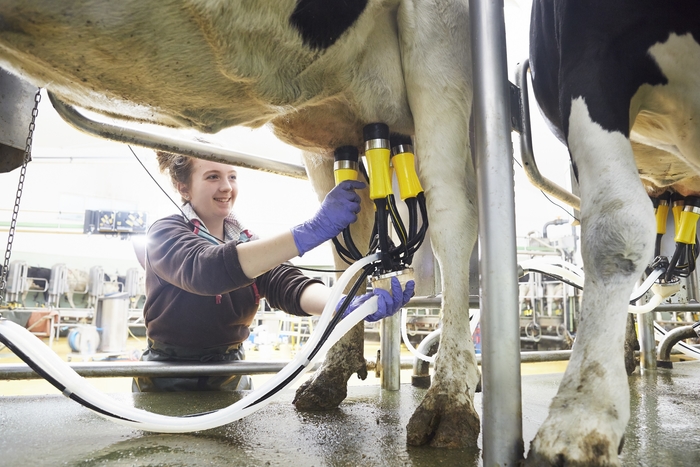More than half of dairy parlour washes are failing to meet manufacturer’s recommendations, according to new research detailed by leading hygiene business Diversey.
Their research has shown that 53.8% of washes failed to optimise the chemical concentration with the correct wash temperature, and that 46.75% failed to deliver the correct chemical concentration for the entire wash cycle.
“This is extremely worrying research for British dairy producers,” says Rob Kelly, Diversey’s regional sales director. “At a time when the industry is looking to reduce antibiotic use on farm, and meet ever-tightening milk contract demands, it’s an area that farmers should be putting top of their action list.”
With its Deosan range of hygiene products, the company is committed to partnering with its customers to help them to produce safe and high-quality milk. “It’s a fact that ‘one size fits all’ doesn’t work for cleaning in place (CIP) routines,” he adds. “No two farms will have the same challenges, or the same equipment.”
A full CIP programme includes parlours, robots and bulk tanks, with every part of the cleaning process as important as the next.
Accurate and efficient cleaning routines are essential to:
- Meet the exacting standards from processors;
- Avoid penalties for excess levels of targeted bacteria (for example thermodurics) and
- Ensure undesirable materials in milk are removed (water and chemical residues).
“Meeting these standards starts with an efficient teat preparation routine with a pre-milking teat disinfectant that ensures the teats are clean before milking. The full CIP routine will use detergent, descaler and disinfectant, combined with our support to ensure an individually-tailored routine for every farm.
The company says that the perfect routine contains four factors – and that all are equally important:
- Accurate chemical dosed solution;
- Optimum temperature;
- Correct turbulence and
- Set period of time.
“The Deosan range ensures clean, fat-free surfaces across all types of milking equipment, removes the possibility of a breeding ground that can support bacterial growth, and ensures the longevity of milk contract components,” says Rob. “It’s important that all four of these factors work in harmony to ensure the best outcome.”
Getting parlour and dairy equipment cleaning right can reduce the need for antibiotics, and reduce the number of cases of sub-clinical mastitis. Results from on-farm tests carried out by National Milk Laboratories (NML) showed that 43% of samples tested ‘very high’ for thermodurics – the bacteria that are able to withstand high temperature washing.
“High thermodurics are related to poor parlour cleaning,” adds Rob. “The right chemical choice is essential, no two needs are the same. We have premium formulations for high end contracts, and others for those with budget constraints, and for farmers with environmental constraints.”
Farmers are encouraged to contact their Diversey representative or call 01604 405311 for more details. There is an available informative video which can be watched here: https://youtu.be/84zIwrhPROI


